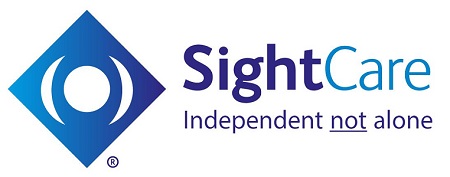
Staff training: cost or investment?
Staff, the most valuable asset of any organisation really can make or break a business. Expanding people skills is one of the most important investments a business can make. Rather than see training as a cost, practices should actively encourage or in some cases insist that their staff attend training courses setting aside annual budgets for this purpose.
Of course, businesses differ enormously in the amount of investment they need to commit, the type and level of training they need to provide to operate successfully, and importantly, flourish year on year.
In the independent sector where competition is fierce in offering high added value products and services directly aimed at the consumer, it’s extremely important that the whole practice team – from owner to the newest recruit – understands the aims and objectives of the business. Those aims and objectives will differ from practice to practice and will be based upon a number of criteria. Does the practice owner want to expand an existing business into a second or third practice, or fully exploit the opportunities with the resource they have?
Often, a practice owner will not be looking for physical expansion at all, but will be keen to ensure that the practice is consistently profitable, has solid foundations and can grow; weathering any downturn in business irrespective of its cause. The owner may well be preparing for retirement in which case a different set of criteria will apply. The common thread that will lead to objectives being met is well trained, motivated and knowledgeable employees that can, and want to work as a team.
The global economy is evolving rapidly. Opportunities of all kinds are emerging as technology also evolves. In our own sector, consumers have an opportunity to choose to get their eyecare needs from a wide range of sources; supermarkets, optical retail chains, wholesalers such as Costco and of course the internet as well as the independent sector. The jobs of yesterday will not be the jobs of tomorrow, and we all – government, business and individuals – need to acquire new and different skills to remain an asset in the work environment.
A recent statistic suggests that skills gaps cost £165,000 for a typical 50 employee business every year. On a simple mathematical basis, this equates to a loss of at least £16,500 for a business employing five people – not an insignificant sum. Of course, the losses can be more extreme in consumer facing businesses such as ours where consistent poor service or lack of attention can spread through a community like a wild fire. We all know from our own experiences of retail purchasing that it doesn’t take a lot for us to decide to shop elsewhere when our expectations of great service are dashed by the indifference of just one member of staff.
The challenge or perception for many practitioners is:
- I cannot afford to train my staff
- My staff have been with me for years and don’t need training
- My staff don’t want to attend training courses
- I need my staff in the practice not on training courses
- I don’t see the benefit of teaching people common sense
- I have trained staff and I have seen no benefit
It can be difficult for very small businesses to find the resources for training, however, it is a myth that because a member of staff has been employed for a number of years that they do not need training. It is often the case that such employees who do attend courses return to a practice motivated and with new ideas for improvement. There is always resistance to change, and understandably many people feel uncomfortable or apprehensive about attending training courses but the reality is those that do attend courses more often than not return invigorated and more confident having enjoyed the experience.
Again, it can be difficult for a small practice to allow staff to take time out of practice in which case distance-learning or in-house training provide options. A good deal of what practice staff do relate to patient communication and common sense, however common sense in isolation will not deliver exceptional service, this comes from a co-ordinated and rounded skills base enabling people to deal with all aspects of the patient journey.
It is almost certainly the case that practice owners have sent their staff on courses and derived no perceived benefit thereafter. For individual training to have a positive effect, it requires that the practice owner takes an active interest in their staff development pre-and post-training. It’s not enough to just to pay for staff training in the misguided belief that committing resources is an end in itself. The benefit comes from active participation, in selecting courses with staff, discussing what the expectations are, and how new learning can be put to good use post experience.
In an increasingly competitive world, consumers will not accept nor should they accept mediocrity when it comes to spending their resources on products and services. Your business success, however you may describe success, will be directly related to the way you are perceived by your patients, and not how well you think you are meeting their needs. Practices that understand the importance of delivering excellence on a consistent year-on-year basis, and go on to deliver it, recognise the value of training as a key ingredient in the business mix. The question is: are you one of them?
John French is Chief Executive of SightCare – the business membership organisation for independent practices.
Tel: 01256 781522 e-mail johnfrench@sightcare.co.uk

